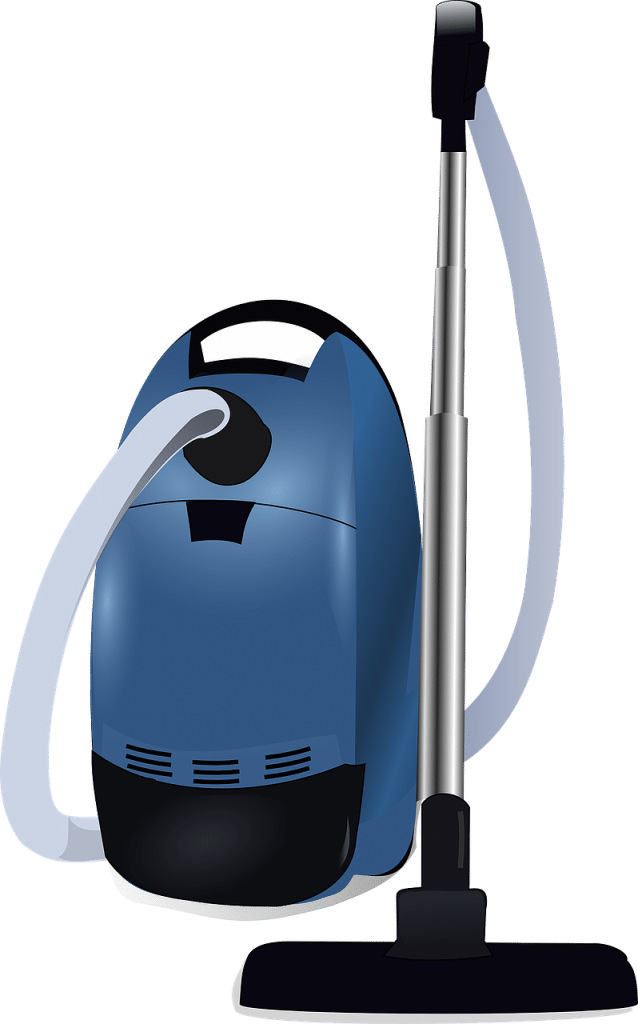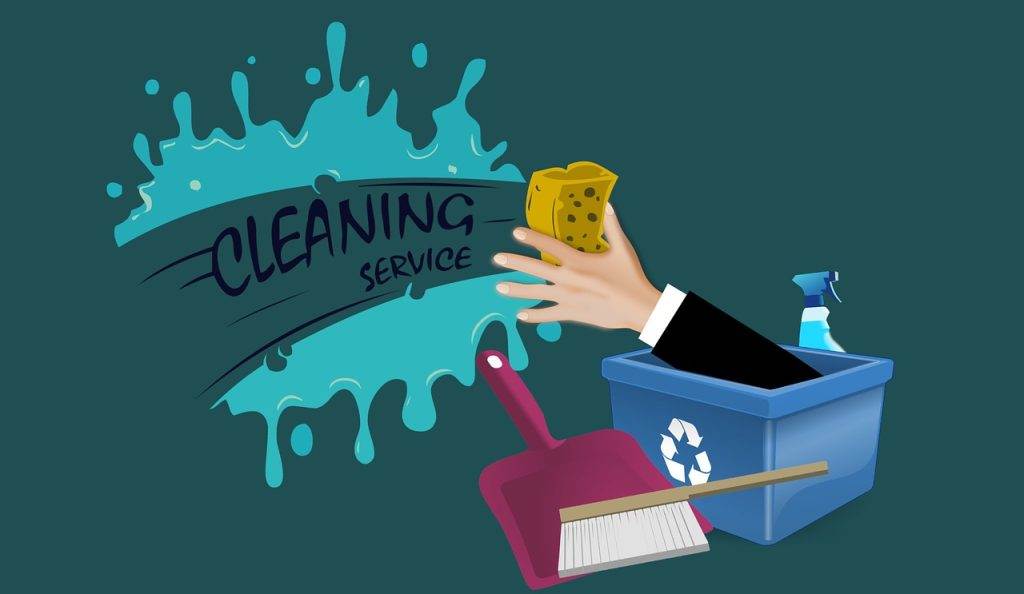29September 2023
Imagine living in a home where dust bunnies flourish, grimy fingerprints adorn every surface, and hidden cobwebs become a permanent fixture. Neglecting to deep clean your house may lead to a myriad of unseen consequences. Over time, this neglect can result in a buildup of harmful bacteria, allergens, and even pest infestations. As we explore the question of what happens if you never embark on a deep cleaning adventure, prepare to discover the unseen dangers lurking beneath the surface and the potential impact they can have on your health and well-being.

This image is property of pixabay.com.
Accumulation of Dust and Allergens
Increased risk of allergies and respiratory issues
When you neglect to deep clean your house, it allows dust and allergens to accumulate. Over time, these particles can become airborne and pose a risk to your health. Allergens such as pollen, pet dander, and dust mites can trigger or worsen allergies, leading to symptoms like sneezing, coughing, and itchy eyes. Additionally, the accumulation of dust can contribute to respiratory issues, especially for individuals with asthma or other respiratory conditions.
Worsening of existing allergies and asthma
If you or someone in your household already suffers from allergies or asthma, the lack of deep cleaning can exacerbate these conditions. The buildup of allergens and dust in your home can trigger more frequent and severe allergic reactions or asthma attacks. The constant exposure to these irritants can make it difficult to find relief from symptoms, impacting your daily life and overall well-being.
Decreased indoor air quality
Deep cleaning your house regularly is crucial for maintaining good indoor air quality. When you neglect cleaning, dust and other pollutants accumulate not only on surfaces but also in the air ducts, carpets, and upholstery. As a result, the air you breathe becomes more contaminated, which can have adverse effects on your respiratory system and overall health. Poor indoor air quality has been linked to various health issues, including respiratory infections, cardiovascular problems, and even cognitive impairments.
Pests and Infestations
Attracting rodents and insects
A dirty and unkempt house can serve as an open invitation for rodents and insects. Food crumbs, spills, and unattended garbage create an ideal environment for pests to thrive. Rats, mice, cockroaches, and ants are commonly attracted to these unsanitary conditions. Once they infest your home, they can cause damage to your property, contaminate your food, and transmit diseases. It’s essential to deep clean regularly to prevent an infestation and maintain a pest-free living environment.
Increased risk of bed bug infestation
Bed bugs are notorious for being difficult to eradicate and can cause significant distress. Neglected cleaning routines create favorable conditions for these blood-sucking insects to multiply and spread. Bed bugs can hide in cracks and crevices, bedding, and furniture, waiting to feed on unsuspecting occupants during the night. The mere thought of a bed bug infestation can cause anxiety and sleepless nights, highlighting the importance of deep cleaning to prevent these pests from infiltrating your home.
Dangers of mold and mildew
When moisture and humidity are not properly addressed through regular deep cleaning, it creates a breeding ground for mold and mildew. These fungi can thrive in damp areas such as bathrooms, basements, and kitchens. Not only do they cause unpleasant odors, but they also pose serious health risks. Exposure to mold and mildew can trigger allergies, respiratory issues, and even more severe health conditions. To safeguard your health and prevent structural damage to your home, regular deep cleaning is essential.

This image is property of pixabay.com.
Health Hazards
Exposure to harmful bacteria and viruses
Neglecting to deep clean your house can expose you and your family to harmful bacteria and viruses. Common household surfaces, such as countertops, doorknobs, and faucets, can harbor germs that are easily spread through touch. Without proper cleaning and disinfection, these pathogens can multiply and cause illnesses, including the common cold, flu, and gastrointestinal infections. Maintaining a clean and sanitized home is vital for minimizing the risk of exposure to these harmful microorganisms.
Spread of germs and infections
In addition to personal contact, the lack of deep cleaning allows germs to linger on various surfaces and objects. Everyday items like cell phones, remote controls, and shared kitchen utensils can become hotspots for bacteria and viruses. Without regular disinfection, these germs can easily spread among household members, leading to recurrent infections and a never-ending cycle of illness. Deep cleaning and maintaining proper hygiene practices are key to preventing the spread of germs and infections.
Potential for food poisoning
The kitchen is an area of the house that demands consistent deep cleaning due to the potential for foodborne illnesses. Failure to properly clean food preparation surfaces, utensils, and appliances can result in cross-contamination and the growth of harmful bacteria. Consuming contaminated food can lead to food poisoning, causing symptoms like nausea, vomiting, diarrhea, and even more severe complications. By prioritizing deep cleaning in the kitchen, you can significantly reduce the risk of foodborne illnesses and protect your family’s health.
Damage to Surfaces and Fixtures
Stains, discoloration, and deterioration
When you neglect deep cleaning, surfaces and fixtures in your home can suffer from stains, discoloration, and deterioration. Spills and dirt left unattended can penetrate porous materials, causing irreversible damage. Carpets, upholstery, and surfaces like wood and stone can become permanently stained or discolored. Additionally, neglecting to clean and maintain bathroom fixtures and appliances can lead to buildup and corrosion, resulting in costly repairs or replacements.
Weakening of structural integrity
Accumulated dirt, dust, and moisture can gradually weaken the structural integrity of your home. For example, neglecting to clean gutters can lead to water overflow, which can cause roof leaks and damage to the foundation. Additionally, allowing dirt and debris to accumulate on outdoor surfaces and walkways can result in erosion and decay. By deep cleaning regularly, you can protect the long-term durability and stability of your home.
Increased maintenance and repair costs
When deep cleaning is overlooked, small issues can escalate into major problems that require costly repairs. For example, failure to clean air vents and filters can lead to reduced efficiency and increased wear on HVAC systems. Neglecting to clean and maintain plumbing fixtures and drains can result in clogs, leaks, and water damage. Regular deep cleaning prevents these issues from arising and helps you avoid unnecessary maintenance and repair expenses.

This image is property of pixabay.com.
Unpleasant Odors
Formation of musty, stale smells
A lack of deep cleaning can result in the formation of musty and stale odors in your home. Accumulated dust, pet dander, and mold contribute to these unpleasant smells, which can permeate fabrics, carpets, and upholstery. Not only do these odors make your home less inviting, but they can also trigger allergies and respiratory issues. By embracing regular deep cleaning, you can keep your home smelling fresh and eliminate the musty odors that linger in neglected areas.
Release of foul odors from hidden sources
In addition to musty odors, deep cleaning helps uncover and address foul smells emanating from hidden sources. For example, forgotten food scraps left in the depths of a refrigerator can result in a lingering stench. Neglected garbage bins, pet bedding, and cigarette smoke residue can also contribute to an unpleasant atmosphere. By thoroughly cleaning these areas and eliminating the sources of odors, you can create a more pleasant and inviting living space.
Difficulty in eliminating persistent smells
The longer you go without deep cleaning, the more difficult it becomes to eliminate persistent smells. Musty odors and foul smells can penetrate surfaces, fabrics, and even walls, making them resistant to simple cleaning methods. Regular deep cleaning ensures that these odors are addressed promptly, making it easier to eliminate them and maintain a fresh-smelling home.
Decline in Aesthetic Appeal
Visible dirt, grime, and stains
A house that has not been deep cleaned will inevitably display visible signs of dirt, grime, and stains. Spilled food, dirty footprints, and accumulated dust can make surfaces look unsightly and neglected. This decline in aesthetic appeal can have a negative impact on your overall enjoyment of your home and can leave a poor impression on visitors.
Cluttered and disorganized appearance
Neglected cleaning can result in a cluttered and disorganized appearance throughout your home. Cluttered countertops, overflowing closets, and unkept storage areas can make it difficult to find things and create a sense of chaos. This disarray can contribute to increased stress and a general feeling of unease.
Negative impact on value and resale potential
Deep cleaning is not only crucial for your daily living environment, but it also affects the value and resale potential of your home. A dirty and poorly maintained house can have a significant negative impact on its market value. Potential buyers are likely to be deterred by an unkempt appearance, which can result in prolonged selling times and lower offers. By prioritizing deep cleaning, you can enhance the aesthetic appeal and desirability of your home.

Reduced Functionality
Inefficient functioning of appliances
Neglecting to deep clean your house can lead to the inefficient functioning of appliances. Accumulated dust, debris, and blockages can decrease the performance and lifespan of appliances such as refrigerators, dishwashers, and washing machines. For example, clogged filters in HVAC systems can restrict airflow and reduce cooling or heating efficiency. By deep cleaning regularly and maintaining these appliances, you can ensure their optimal performance and extend their longevity.
Clogged and malfunctioning plumbing systems
Failure to deep clean can result in plumbing issues due to clogs and blockages. Hair, soap scum, food particles, and other debris can accumulate in drains, toilets, and pipes, leading to slow drainage or complete blockages. These plumbing problems can be costly and inconvenient to resolve. By incorporating deep cleaning habits, you can prevent plumbing issues and maintain a smoothly functioning system.
Obstructed ventilation and air circulation
When you neglect deep cleaning, vents, filters, and air ducts can become obstructed by dust and debris. This not only decreases the efficiency of your HVAC system but also hampers proper air circulation throughout your home. Inadequate ventilation can result in stale indoor air, increased humidity levels, and an overall uncomfortable living environment. To ensure optimal air quality and circulation, regular deep cleaning is essential.
Increased Fire Hazards
Accumulation of flammable materials
One of the hazards of neglecting deep cleaning is the accumulation of flammable materials in your home. Dust, lint, and other debris can collect near heat sources like stoves, furnaces, and electrical outlets, increasing the risk of a fire. These flammable particles can ignite easily and spread rapidly, potentially causing extensive damage to your property and posing a danger to your safety.
Overloaded electrical circuits
Without regular deep cleaning, electrical outlets, plugs, and cords can become cluttered with dust and debris. This can lead to poor electrical connections and even overload circuits, increasing the risk of electrical fires. By ensuring that these areas are clean and free of obstructions, you can mitigate the risk of electrical hazards and maintain a safe home environment.
Poor maintenance of smoke detectors
Deep cleaning goes hand in hand with the maintenance of crucial safety features in your home, such as smoke detectors. Neglecting deep cleaning can result in dirt and dust accumulation on smoke detectors, impairing their functionality. In the event of a fire, a compromised smoke detector may not activate, putting your life and property at risk. Regular deep cleaning ensures that these important safety devices are well-maintained and can provide early detection of smoke or fire.

Emotional and Psychological Effects
Stress and anxiety due to disorderliness
A cluttered and disorganized home can contribute to feelings of stress and anxiety. The constant visual reminders of disarray and the difficulty in finding and accessing things can lead to a sense of overwhelm. Deep cleaning helps create an organized and tidy living space, contributing to a calmer and more relaxed state of mind.
Lack of relaxation and tranquility
A clean and organized environment has a direct impact on your ability to relax and find tranquility in your own home. When you neglect deep cleaning, the accumulation of dirt and clutter can disrupt the sense of peace and calm that comes with a well-maintained living space. By prioritizing regular deep cleaning, you can create a sanctuary where you can unwind and recharge.
Impact on mental well-being
The state of your home environment can significantly impact your overall mental well-being. Living in a cluttered, dirty, and disorganized space can contribute to feelings of depression, anxiety, and a general sense of unhappiness. Deep cleaning not only improves the physical aspects of your home but also supports your mental health by creating a clean, inviting, and uplifting living environment.
Social Implications
Embarrassment and potential isolation
A dirty and unkempt house can lead to feelings of embarrassment when hosting guests or inviting others into your home. The shame associated with an unclean living environment can lead to social anxiety and a reluctance to entertain or spend time with others at home. By incorporating regular deep cleaning into your routine, you can regain confidence in your living space and eliminate the fear of judgment or embarrassment.
Negative impression on guests and visitors
When guests or visitors enter your home, a dirty or disorganized environment can leave a negative impression. It can make them feel uncomfortable, impact their perception of your hygiene standards, and even strain relationships. Creating a clean and welcoming atmosphere through deep cleaning shows respect for your guests and contributes to positive interactions.
Strained relationships with cohabitants
Neglected cleaning can lead to tension and strain in relationships with cohabitants. Differences in cleanliness standards and expectations can cause conflict and animosity. The lack of deep cleaning can create resentment and frustration, as it requires others to take on additional cleaning responsibilities. By prioritizing deep cleaning, you can foster harmonious relationships and maintain a peaceful living environment for everyone.
In conclusion, neglecting to deep clean your house can have a wide range of negative consequences. From health hazards to damaged surfaces, unpleasant odors to reduced functionality, and even emotional and social implications, the impact of a lack of deep cleaning can be significant. Prioritizing regular deep cleaning not only ensures a clean and inviting living environment but also contributes to your overall health, well-being, and quality of life. It is essential to make deep cleaning a habit to maintain a safe, comfortable, and enjoyable home for you and your loved ones.
